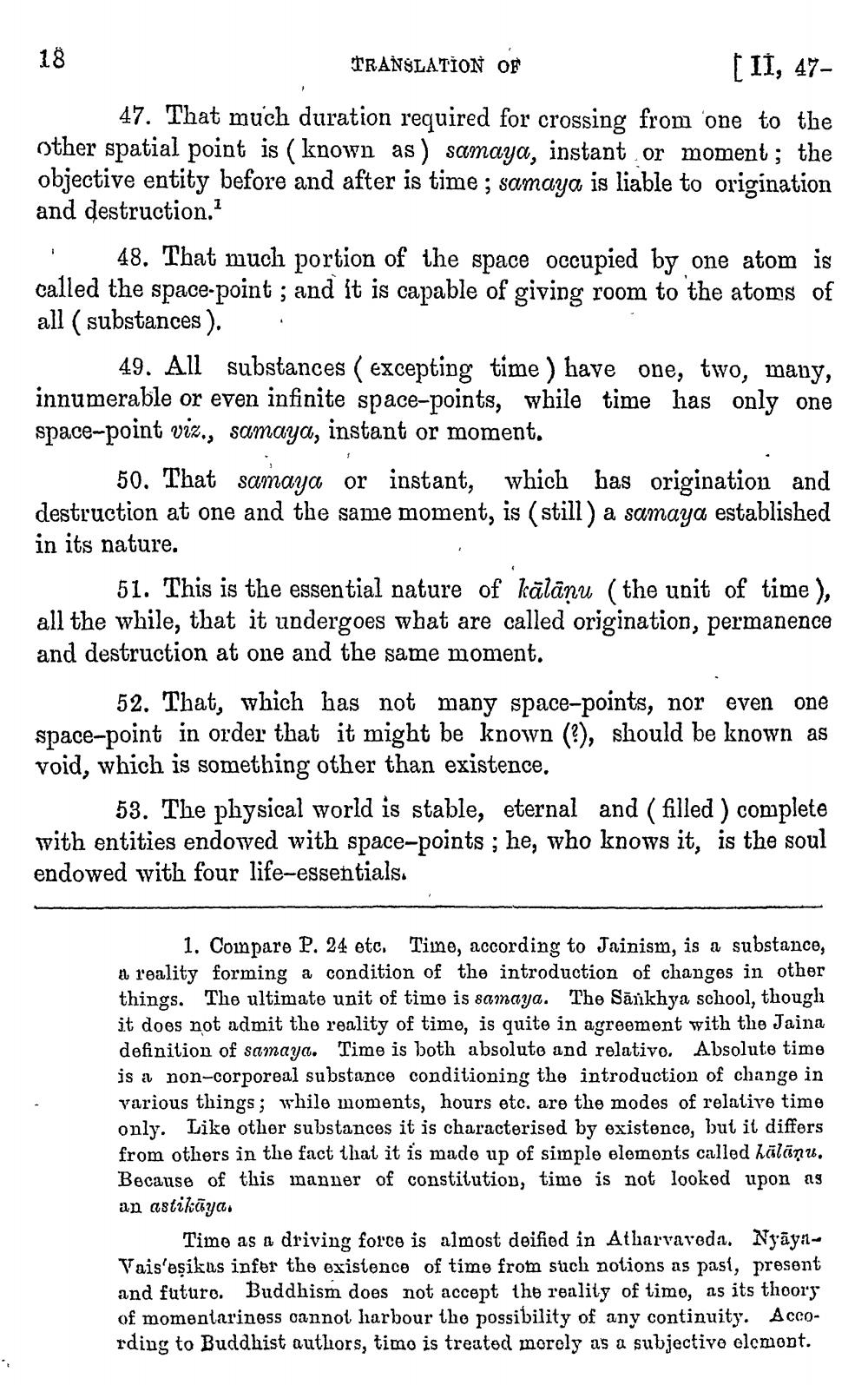________________
18
TRANSLATION OF
[II, 4747. That much duration required for crossing from one to the other spatial point is ( known as ) samaya, instant or moment; the objective entity before and after is time; samaya is liable to origination and destruction."
48. That much portion of the space occupied by one atom is called the space-point ; and it is capable of giving room to the atoms of all (substances ). .
49. All substances (excepting time ) have one, two, many, innumerable or even infinite space-points, while time has only one space-point viz., samaya, instant or moment.
50. That samaya or instant, which has origination and destruction at one and the same moment, is still) a samaya established in its nature.
51. This is the essential nature of kālānu (the unit of time), all the while, that it undergoes what are called origination, permanence and destruction at one and the same moment.
52. That, which has not many space-points, nor even one space-point in order that it might be known (?), should be known as void, which is something other than existence.
53. The physical world is stable, eternal and ( filled ) complete with entities endowed with space-points ; he, who knows it, is the soul endowed with four life-essentials.
1. Compare P. 24 etc. Time, according to Jainism, is a substance, a reality forming a condition of the introduction of changes in other things. The ultimate unit of time is samaya. The Sāükhya school, though it does not admit the reality of time, is quite in agreement with the Jaina definition of samaya. Time is both absoluto and relativo. Absolute time
s a non-corporeal substance conditioning the introduction of change in various things; while moments, hours etc. are the modes of relative time only. Like other substances it is characterised by existence, but it differs from others in the fact that it is made up of simple elemonts called hälānu. Because of this inanner of constitution, time is not looked upon as an astikāya.
Time as a driving force is almost deified in Atharvavoda. NyāyiVais'eşikus infor the existence of time from such notions as past, present and futuro. Buddhism does not accept the reality of timo, as its thoory of momentariness cannot harbour the possibility of any continuity. According to Buddhist authors, timo is treated morely as a subjective elemont.




